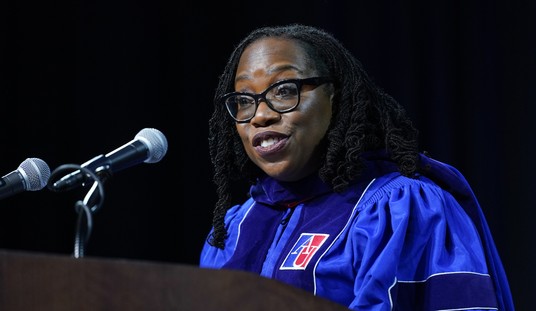So Jeb Bush has begun gearing up for a political campaign. That’s news on several levels, many of which we’ve already explored at length here at Hot Air. In regard to length, though, Byron York asks a pretty good question — just how well will Jeb do as a campaigner after a fourteen-year layoff? The last time he ran a campaign was in 2002, when Bush won re-election as governor in Florida. Byron wonders whether Bush can shake off the rust:
That’s a long time. In fact, Bush’s 14-year gap is bigger than any general-election presidential candidate in recent memory.
When Mitt Romney ran for president in 2012, he had run for the Republican nomination four years earlier and for governor of Massachusetts six years before that. When Barack Obama ran for president in 2008, he had run for the Senate four years earlier. When John McCain ran against Obama in 2008, he had also run for Senate four years earlier. When John Kerry ran for president in 2004, he had run for Senate two years earlier.
When George W. Bush ran for president in 2000, he had run for governor of Texas two years earlier. When Al Gore ran against Bush, he had run for vice-president four years earlier. When Bob Dole ran for president in 1996, he had run for the Senate four years earlier. When Bill Clinton ran for president in 1992, he had run for governor of Arkansas two years earlier.
When George H.W. Bush ran for president in 1988, he had run for vice-president four years earlier. When Michael Dukakis ran against Bush in ’88, Dukakis had run for governor of Massachusetts two years earlier. When Walter Mondale ran for president in 1984, he had run for vice-president four years earlier. When Ronald Reagan ran for president in 1980, he had run for the Republican nomination four years earlier and had been re-elected as governor of California six years before that. Going back even farther, Richard Nixon, when he ran for president in 1968, had run for governor of California six years earlier and for president two years before that.
All that makes Jeb Bush’s 14-year gap seem really, really big. In fact, it could be rivaled, although not matched, only by Hillary Clinton’s eight-year gap between her presidential run in 2008 and another try in 2016.
Eric Ostermeier asked the same question earlier in the week. The fourteen-year gap is the longest at the presidential level by a successful candidate in more than 150 years. In fact, the last man to have overcome that long a gap was …
The last president who saw 14 years pass between his last electoral victory and winning the White House was none other than Abraham Lincoln. Lincoln was elected to the U.S. House from Illinois in 1846 but served only one term and did not win another race until the presidency in 1860. The gap for Richard Nixon in 1968 was 12 years and was 10 years for Ronald Reagan in 1980 (though each had run for president in the interim).
The average gap for a winning presidential candidate during this 150-year span has been just a shade over four years.
It’s more than just a question of rust. Jeb Bush hasn’t forgotten how to campaign, plus he’ll raise enough cash to hire some talented hands to join his effort. That is certainly one reason why Bush may have pulled the trigger so early in the cycle, at a point where fringe candidates usually take advantage of slow news cycles to generate a little earned media. With such a wide-open field and so many candidates expected to throw hats in the ring, the pool of campaign talent will run dry at some point. By committing this early, Bush can lock up some of that talent for his own campaign at the expense of those who want to wait longer for their own first moves.
Capability isn’t the issue, at least not in terms of campaigning. The issue is relativity. There is a reason why the average gap is four years, and has been shorter than that over the last 22 years. Voters want to invest in the future, not the past — which is why Bush’s announcement puts the GOP at the crossroads, as I argue in my column for The Fiscal Times. Do Republicans fall back to a candidate of the past, or take the opportunity to use their bench to invest in the future?
Mainly, though, Bush represents a political past within the Republican Party that has little relation to the party of today that he wants to lead. Bush claimed in a 2012 New York Times interview that the GOP of today would never have nominated Ronald Reagan or his father George H. W. Bush for the presidency based on the conservative grassroots and its agenda. … Complaining that the Republican Party isn’t the same as it was in 1988 is a curious way to make oneself relevant in 2016. …
The difference [in 2012], though, was that the GOP didn’t have many options for nominees that reflected the post-George W. Bush era of the party. That was one of the prime drivers of the unusual anyone-but-Mitt dynamic in polling seen in late 2011, as candidates from Herman Cain to Michele Bachmann enjoyed brief moments at the top of national polls. The only two sustained challenges to Romney’s dominance in the primary campaign, Rick Santorum and Newt Gingrich, had been political figures from the Clinton era, out of office for four and twelve years, respectively. The only practical options available to a new generation of Republicans were choices from the previous generation.
In 2016, that will no longer be the case. …
It’s not that Jeb Bush would make a poor President. It’s just that he’s all about the past of the party, in the same way that Hillary Clinton is all about the Democratic Party’s past, both of the Clinton era and of the Obama era that has voters looking for real change once again. Republicans have to ask themselves whether they want to keep looking to the past, or looking to the future – and this time they have real options for choosing the latter.
It’s not that Bush wasn’t a good governor, or that Newt Gingrich and Rick Santorum weren’t good officeholders either. They were … and that’s the point. We have a bench that didn’t exist in 2012 that could make the GOP the party looking to the future rather than the past in 2016. That will be a tremendous advantage — if only the GOP realizes it.








Join the conversation as a VIP Member